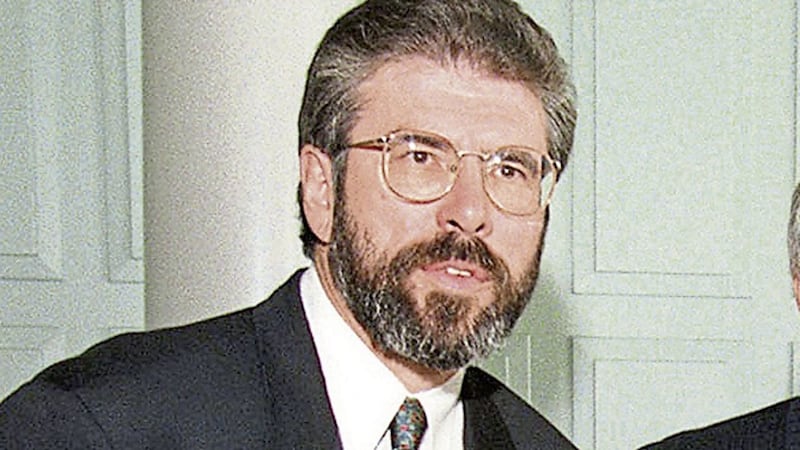GERRY Adams privately asked the Dublin government to give preferential treatment to 11 IRA prisoners just days after the 1994 ceasefire, declassified files reveal.
A five-page confidential memo sent on September 19, 1994 detailing a meeting between NIO permanent secretary Sir John Chilcott and Timothy Dalton, a senior official in the Republic's Department of Justice, shows Dublin effectively negotiated with the IRA, which gave certain “undertakings” if prisoners were treated more favourably.
Sir John said that one of the main topics Mr Dalton wished to discuss was prisoners, telling the NIO official that “there would be a review of republican prisoners’ cases with a view to marginal easement in their earliest date of release”.
He said “he (Mr Dalton) was at pains to say that there would not be an amnesty nor anything so described, and they would not be ‘overly generous’”, in part “because of comparisons with ordinary criminal prisoners”.
Mr Dalton suggested that remission may be increased from a quarter to a half "which might enable perhaps as many as 14 paramilitary prisoners in the south to be released by about Christmas time (out of a population of a little over 80) but there would be no announcement of it – it would simply happen".
He also said that there was likely to be a review of the life sentence prison population, which included three IRA prisoners.
Sir John said: "He also added (please protect especially) that Adams had requested the Irish government for special dispensation in respect of 11 prisoners (he did not specify as between fixed term prisoners and lifers) who should be given particular consideration – although he emphasised there was no expectation of immediate or very early release.
"I was given to understand that in return for this ‘generosity’ the Provisional IRA had given undertakings regarding full cooperation within prisons with the regime, an end to attempts to smuggle in arms and other objects, while on the government’s side it was likely that minor regime improvements would take place such as the provision of colour televisions in cells."
Sir John, who later chaired the Iraq war inquiry, said that he made clear that "it was not thinkable or acceptable, to the government and Westminster, that there would be any interference in the due process of justice regarding sentences to be served".
In late 1994, the Irish authorities released nine IRA prisoners on licence.
The memo also sets out Mr Dalton’s view that the Dublin government had belatedly come to believe that the IRA posed a far bigger threat to the southern state than it had previously thought.
The NIO permanent secretary said: "Tim Dalton said that there was a move taking place in the Irish government’s attitude as they came to realise on advice from the Garda Síochána and the Department of Justice that the historical softline in terms of previous violent republican campaigns could no longer hold given the Libyan arms shipments and threat that the holdings of Semtex, heavy weapons, etc, presented to the Irish state not least in their leakage into ordinary criminal use."








